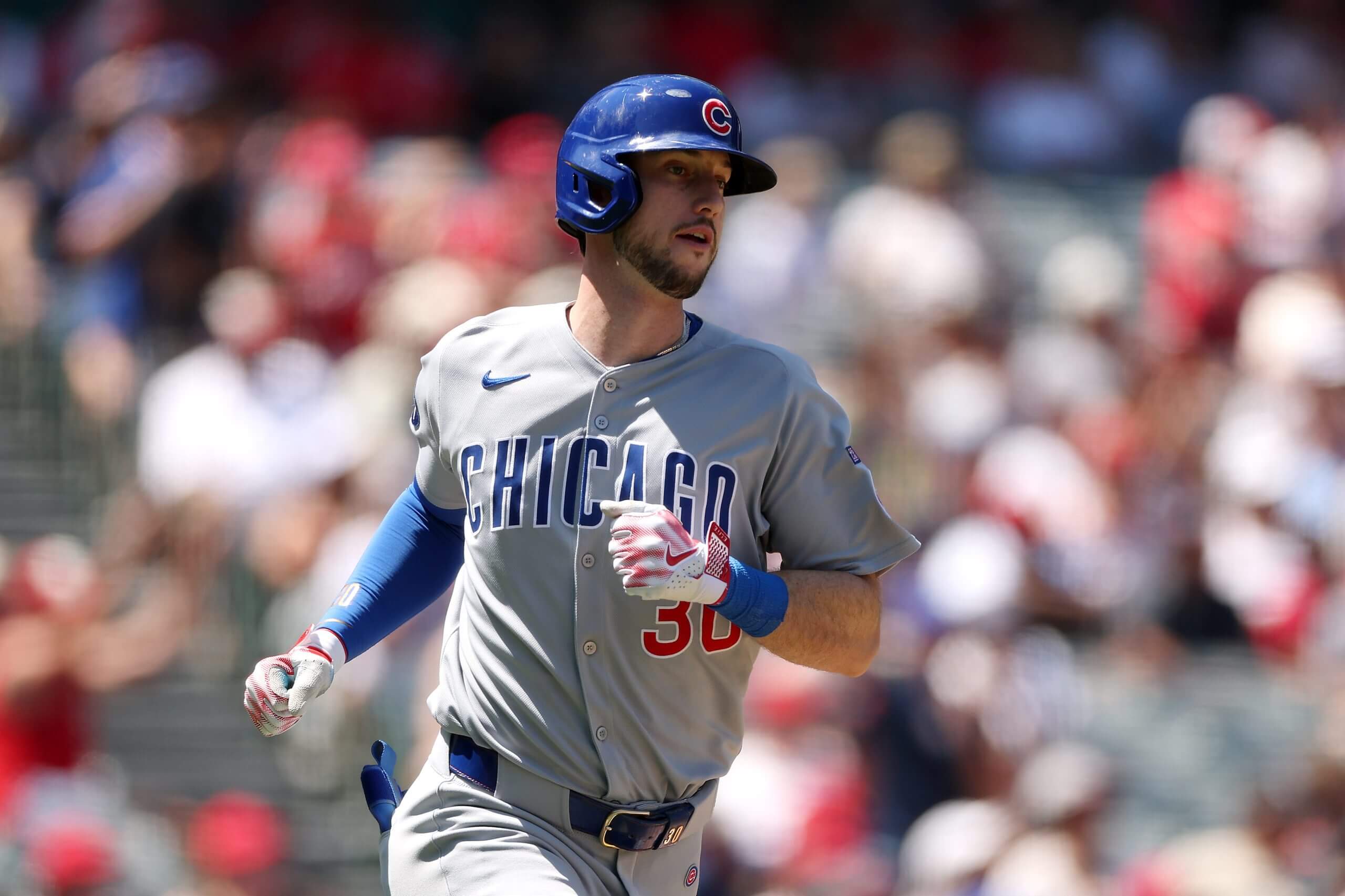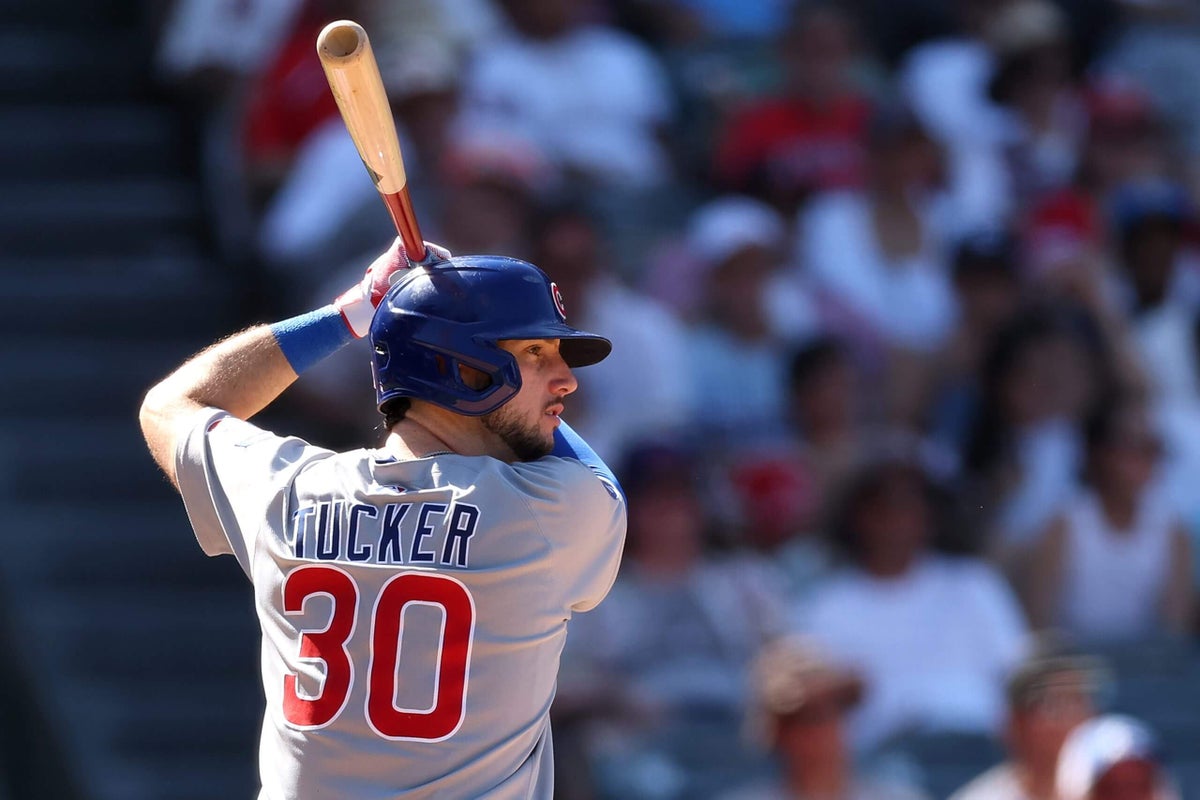SAN FRANCISCO — In making the calculated decision to bench Kyle Tucker last week, Chicago Cubs manager Craig Counsell did not see much risk. The idea of alienating Tucker, a star player with a low-key personality and a team-centric approach, did not register. That natural sense of calm, though, made Tucker’s helmet flinging and bat slamming all the more glaring.
The frustrations also froze Tucker in a few moments, when he saw yet another groundball rolling toward first base and lingered near the batter’s box. With the boos echoing throughout Wrigley Field, Counsell recognized a person who simply needed a break.
The move was not unprecedented.
In recent years, the Cubs successfully took a similar approach with players such as Seiya Suzuki and Ian Happ, framing it as a “mental reset.” But actually going through with it meant removing Tucker from three games in two days against the Milwaukee Brewers, the first-place team the Cubs are trailing in the National League Central.
The optics would not be good for the Cubs or Tucker, the projected No. 1 free agent this winter. During that timeout, it was revealed and confirmed that Tucker was diagnosed with a hairline fracture in his right hand in June, an injury that is now fully healed.
What a difference a week makes.
Flying to the West Coast and sweeping the Los Angeles Angels boosted the club’s confidence and improved its chances of chasing down the Brewers. Over the weekend, Tucker had more home runs in three games at Angel Stadium (three) than he did the entire rest of August and July (one). After pressing pause, the Cubs believe something clicked.
“The game gets going really fast when you play every day, especially when you start to struggle,” hitting coach Dustin Kelly said. “From the dugout, you start to see that it’s really not that fast, and maybe you were speeding it up. You watch guys have at-bats and you’re like, ‘Oh, it’s not moving quite as fast as it’s moving for me.’ It brings you back to a different perspective when you get back in that box.
“It gives the guys a chance to take a breath and not feel like they have to go get ready for the game and compete. They can be a little more vulnerable in the cage and maybe do some things that they wouldn’t normally do.”
Tucker is regarded as a hitting savant, and that reputation goes beyond his individual numbers or accolades. He doesn’t wear himself out before games, taking only as many swings as he needs to get the right feel. He’s stubborn in the batter’s box, hunting certain pitches, locations and opportunities to do damage.
“He has a Rolodex of pitchers and shapes and speeds that he can almost pull up on command,” Kelly said. “It’s one of the unique traits that he has that makes him so great.”
Typically, that photographic memory and lack of emotion help Tucker gather information and avoid overreactions or too much tinkering. The Cubs used their extensive video system to pull up side-by-side comparisons of his positioning with the Houston Astros and what his left-handed swing looked like during the worst slump of his career.
“What in the chain is breaking down?” Kelly said. “What do we attack first? You’re always looking for the first domino that makes everything else kind of fall apart.”
The law of averages suggests that a player as accomplished as Tucker would not struggle forever. But there was still a sense of urgency. The Cubs have a finite amount of time before he can reach free agency, and their ceiling is much higher when he’s at his best. Still, even the most confident hitters can get lost.
The motions with Tucker’s legs, and how he activated the lower half of his body, became the focus. It had created a flatness to a swing that’s designed to launch balls in the air, and led to too many groundballs to the right side of the infield, or missed pitches that wound up in foul territory.
“We would go back to certain pitches that he had hit in ‘21,‘22,” Kelly said. “He has an incredible recall of swings that he’s taken off guys, and what type of pitches. (Tucker would say) ‘This kind of reminded me of the pitch that I hit off (Aaron) Nola in the World Series.’ We’d go back and watch that very similar pitch and compare the moves.”
Tucker’s visual learning is also paired with an easy way of engaging with teammates. As a group, the Cubs enjoy comparing notes on pitchers and what to look for in the next at-bat. In particular, Tucker watches left-handed hitters Pete Crow-Armstrong and Michael Busch to get a sense for the opponent’s plan of attack.
This is how hitting can become contagious, either energizing or deflating the lineup, depending on the results.
“Everyone pays attention to everyone’s at-bats,” Tucker said. “We do a really good job with the communication part to keep everyone locked in.”

In three games against the Angels, Tucker tallied five hits, including three homers. (Luke Hales / Getty Images)
In working through these issues, the club and the player did not have a lot of shared history. The Cubs acquired Tucker in a blockbuster trade last offseason, knowing that the Astros would receive a ton of potential future value. Medical technology is also so advanced – and hitting major-league pitching is so hard – that it can create some gray areas.
To his credit, Tucker kept playing with minimal interruptions after jamming his right ring finger on a headfirst slide at the beginning of June. That turned out to be his best month as a Cub so far (.982 OPS). Further testing showed a fracture that was already healing, but it’s possible that compensating for that injury led to some subtle mechanical changes that eventually became counterproductive.
The stakes are enormously high for Tucker, whose profile around the start of the season drew comparisons to Vladimir Guerrero Jr.’s 14-year, $500 million contract extension with the Toronto Blue Jays.
“I don’t think that the free-agent stuff has really affected the way that he goes out and plays baseball,” Kelly said. “It doesn’t affect the way that he interacts with our guys. He’s in this 100 percent. He wants to win here. He wants to be here. And I don’t think his mind ever gets to that: ‘What if? Or how much? Or how long or where?’ He’s so locked in on helping us win tonight.”
After Monday’s off day in the Bay Area, the Cubs will begin a three-game series against the San Francisco Giants on Tuesday night at Oracle Park. As much as the Cubs want to believe Tucker is back, and that their offense will finally start rolling again, it’s still not as easy as flipping a switch.
“The game doesn’t grant you any favors,” Counsell said. “You got to keep coming out and keep trying to do it.”
(Top photo: Luke Hales / Getty Images)

